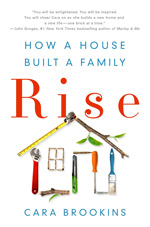 “Hillbilly Elegy: a Memoir of a family and Culture in Crisis,” J. D. Vance
“Hillbilly Elegy: a Memoir of a family and Culture in Crisis,” J. D. Vance
(Harper, pp 272, $ 27.99)
A book that could not be more timely. The “Hillbilly Elegy,” is a memoir about poor white folks in a Rust Bell town, Middletown, in Southern Ohio. Timely because, these are the angry folks who elected Trump on the promise that he will bring jobs back to them. Income inequality, class warfare, high unemployment, drug addictions, and family disintegration, constitute the tapestry of everyday life. One can only speculate had the Democrats gotten their hands on this treasure trove of insights of this small town America two months earlier, what could have happened . . . Though well-documented and researched, “Hillbilly Elegy” is not simply a book of sociology. It also written from the inside, by one of “theirs.”
This is where the author, J. D. Vance, grew up, in a multi-generational family originating from the Appalachia, and journeyed from, to study at the Yale Law School. The book draws with moving descriptions the portrait of a culture in crisis where lives are torn apart by cycles of economic depression, featuring Vance’s own family. J. D. Vance excels at describing how the hillbillies lost faith “in any hope of upwards mobility.” The way he talks about his own mother’s struggle with drugs, finding forgiveness in himself, showing a lack of judgment to offer understanding is truly heartbreaking. At the core, the book questions the myth of the American Dream where promises are broken, and the prospect of a good life is blunted by the bleak lack of horizons. A great portrait of proletarian literature not seen in decades.




